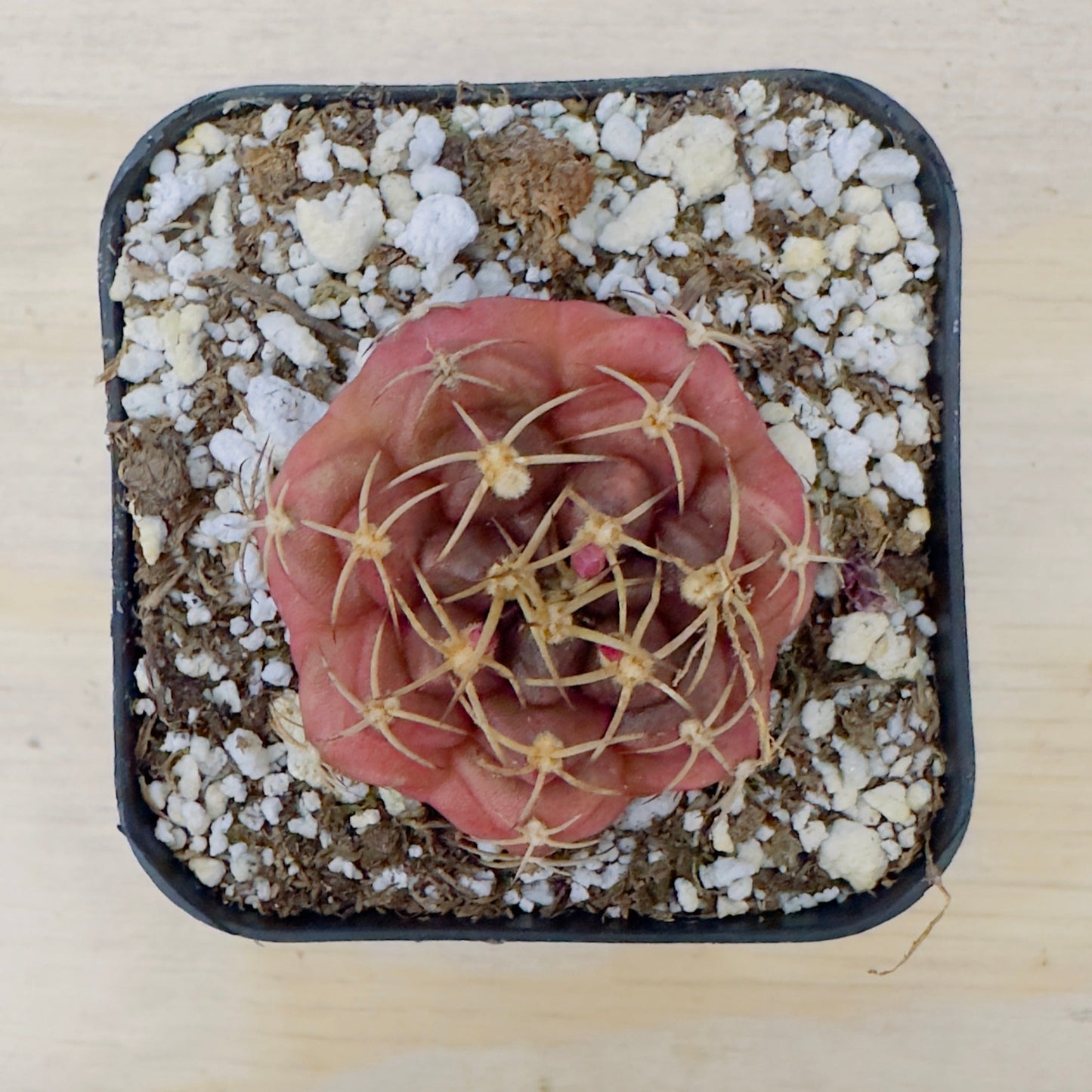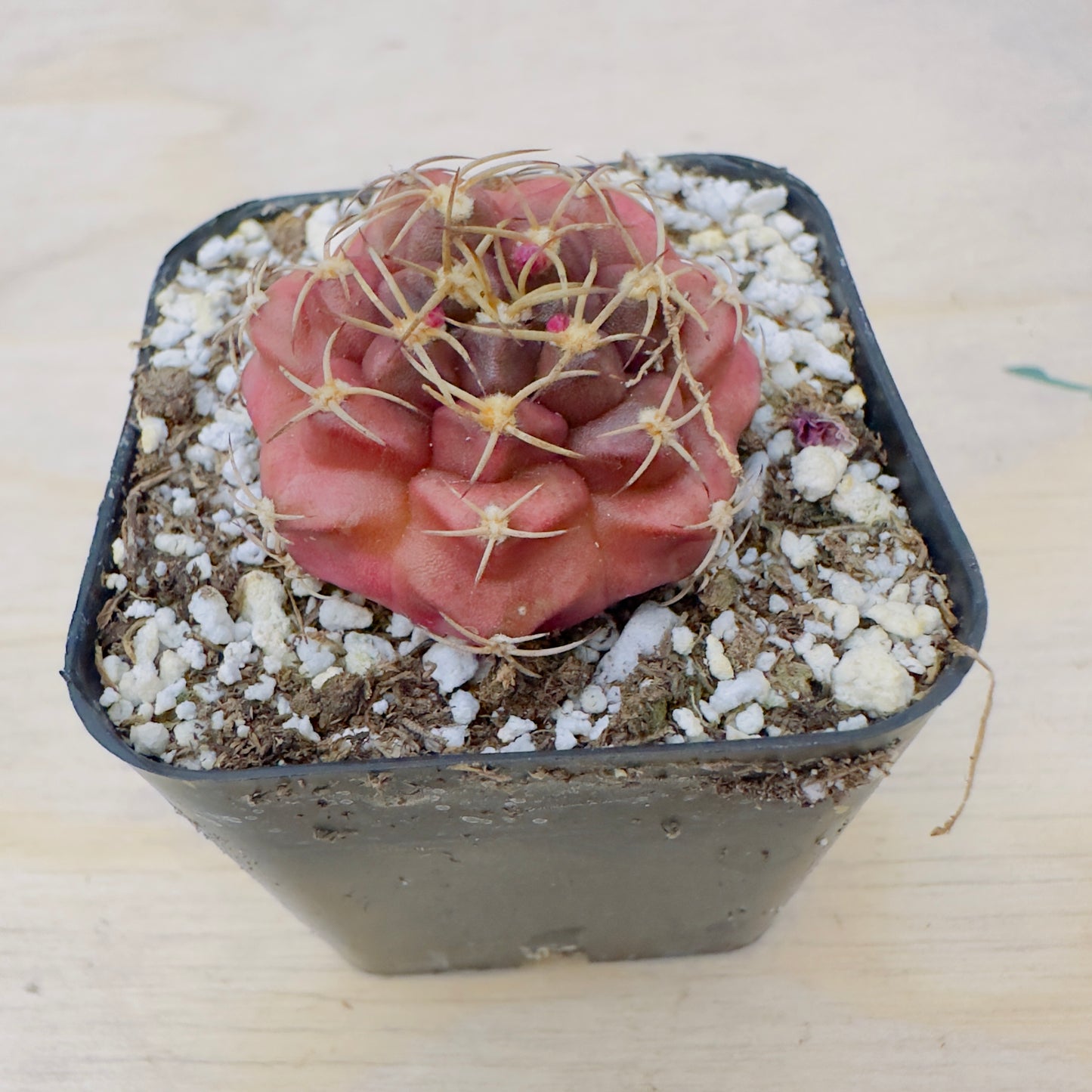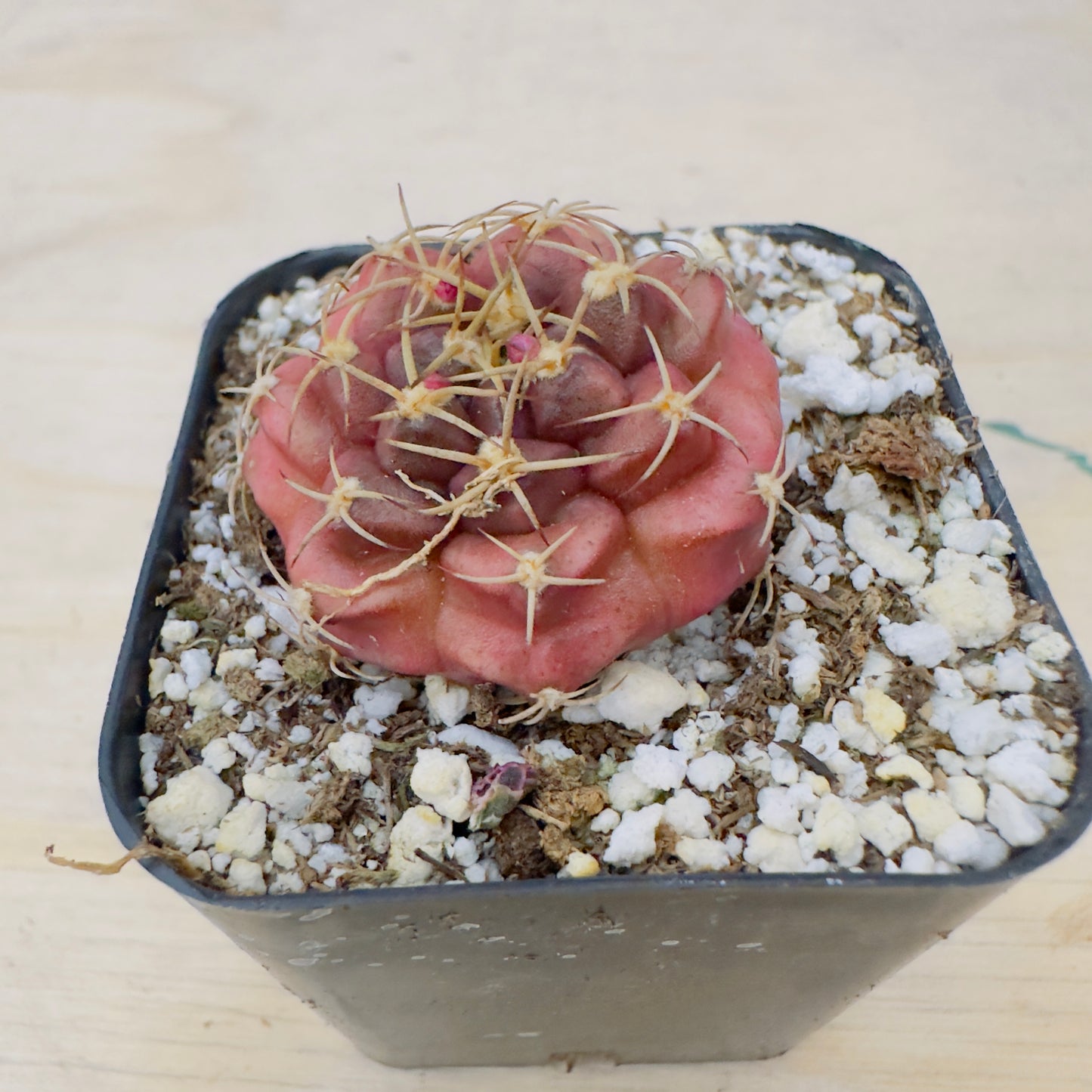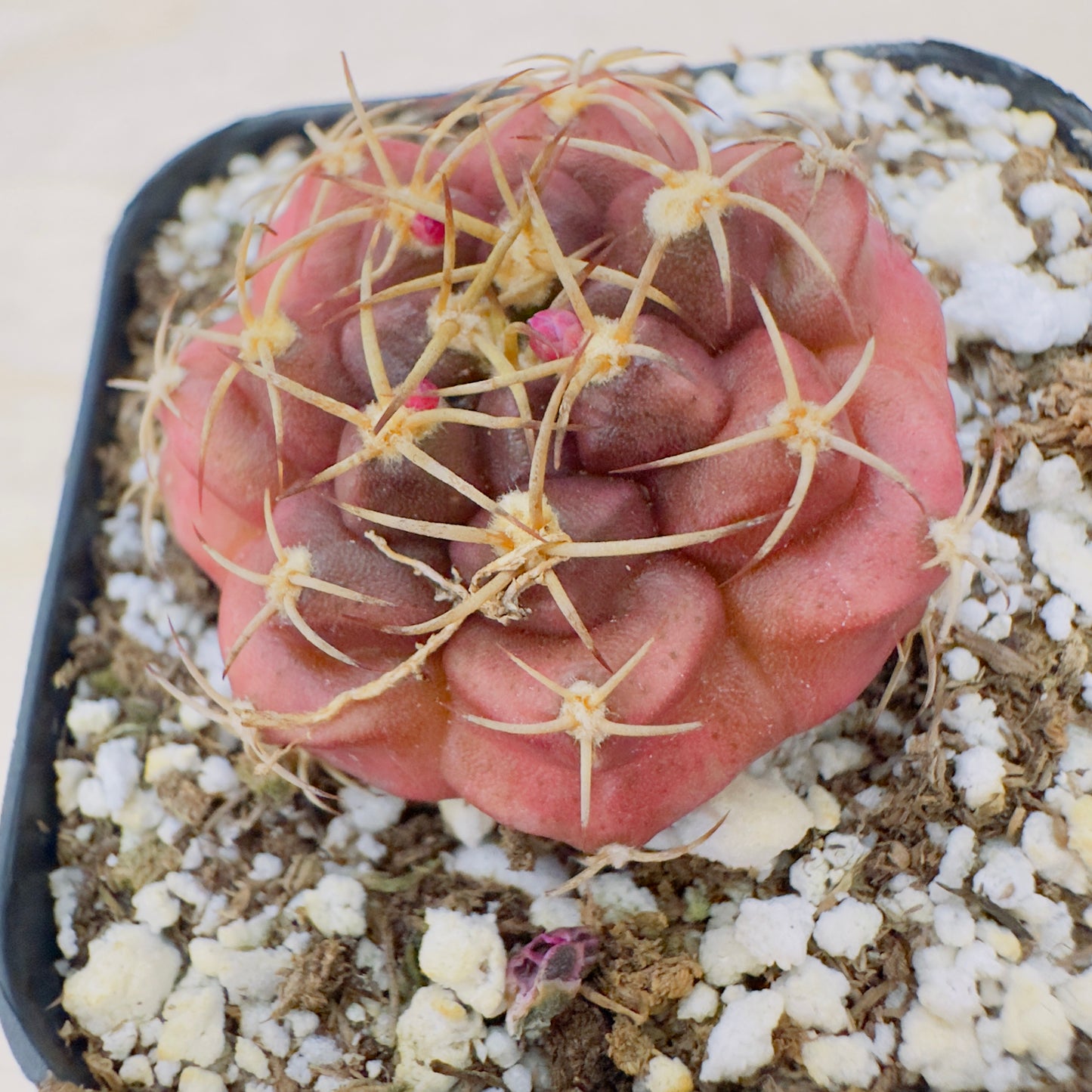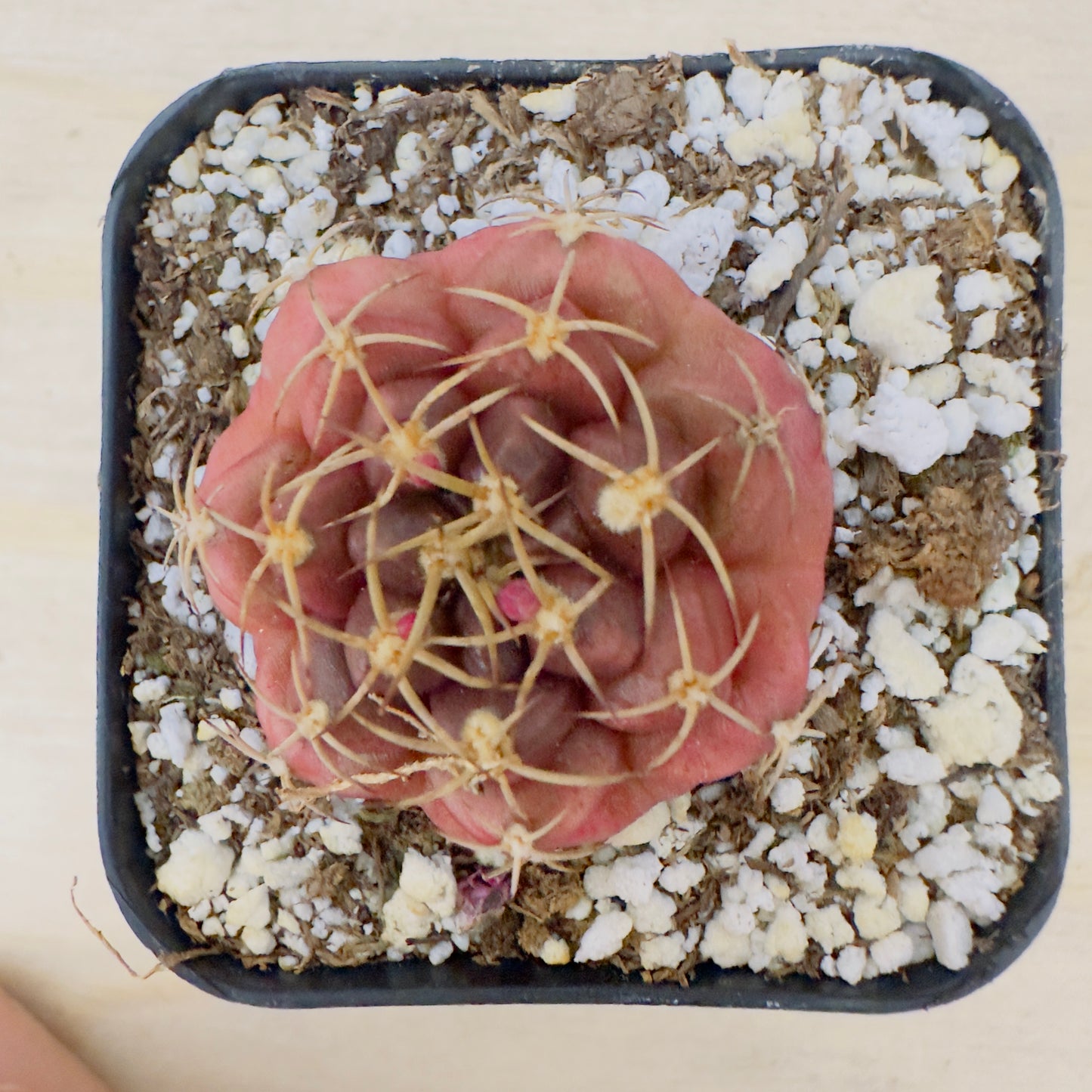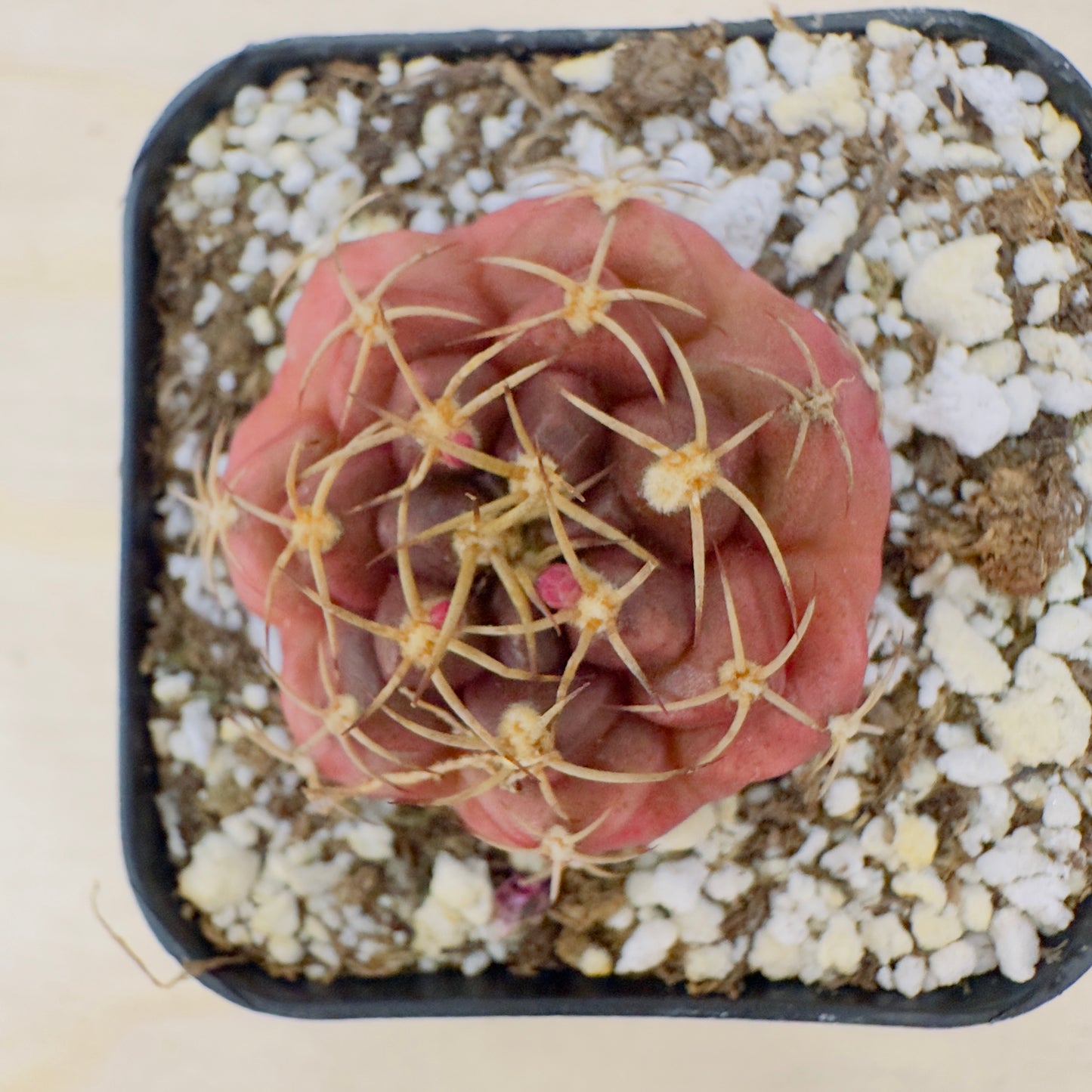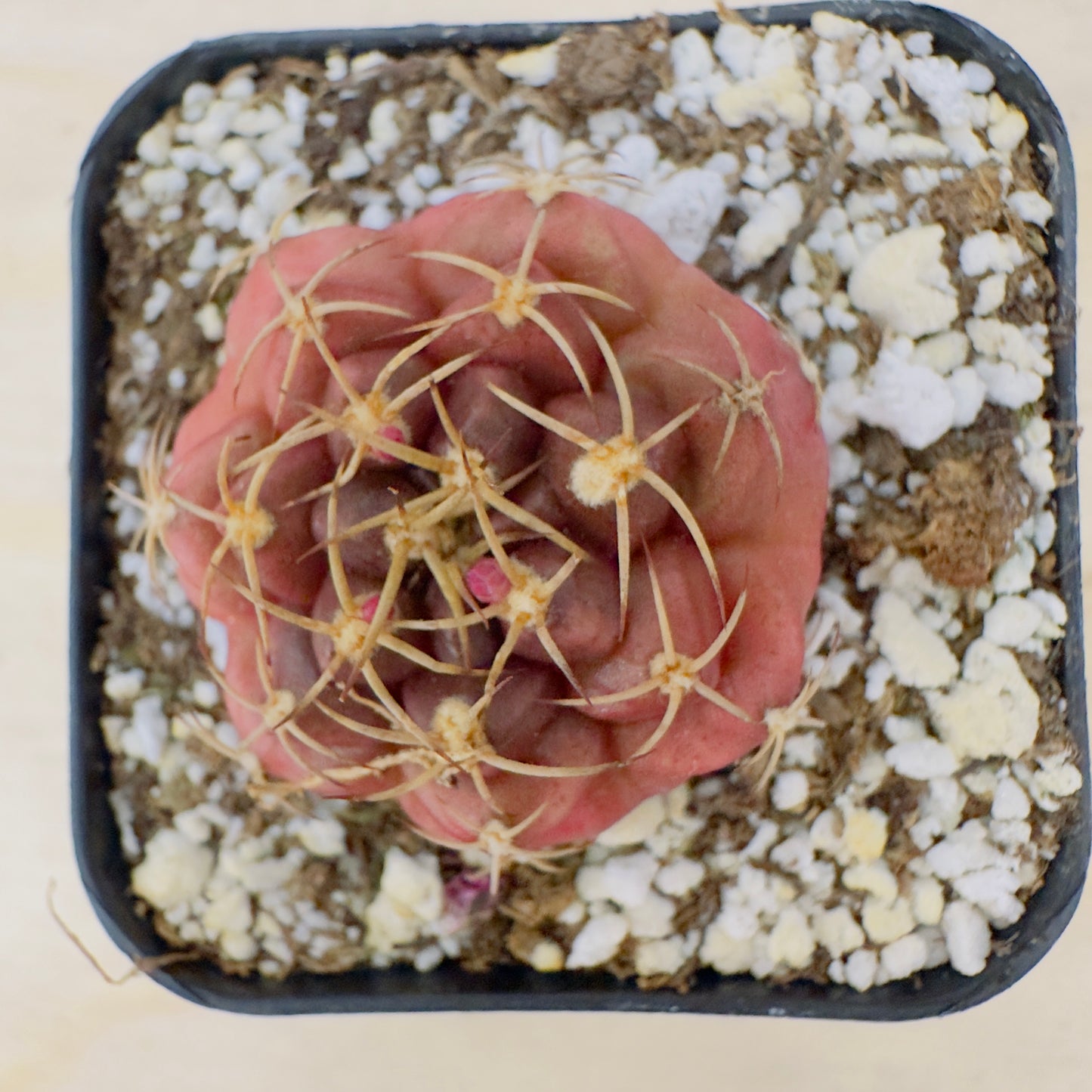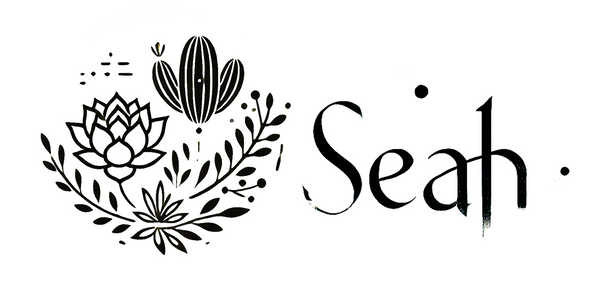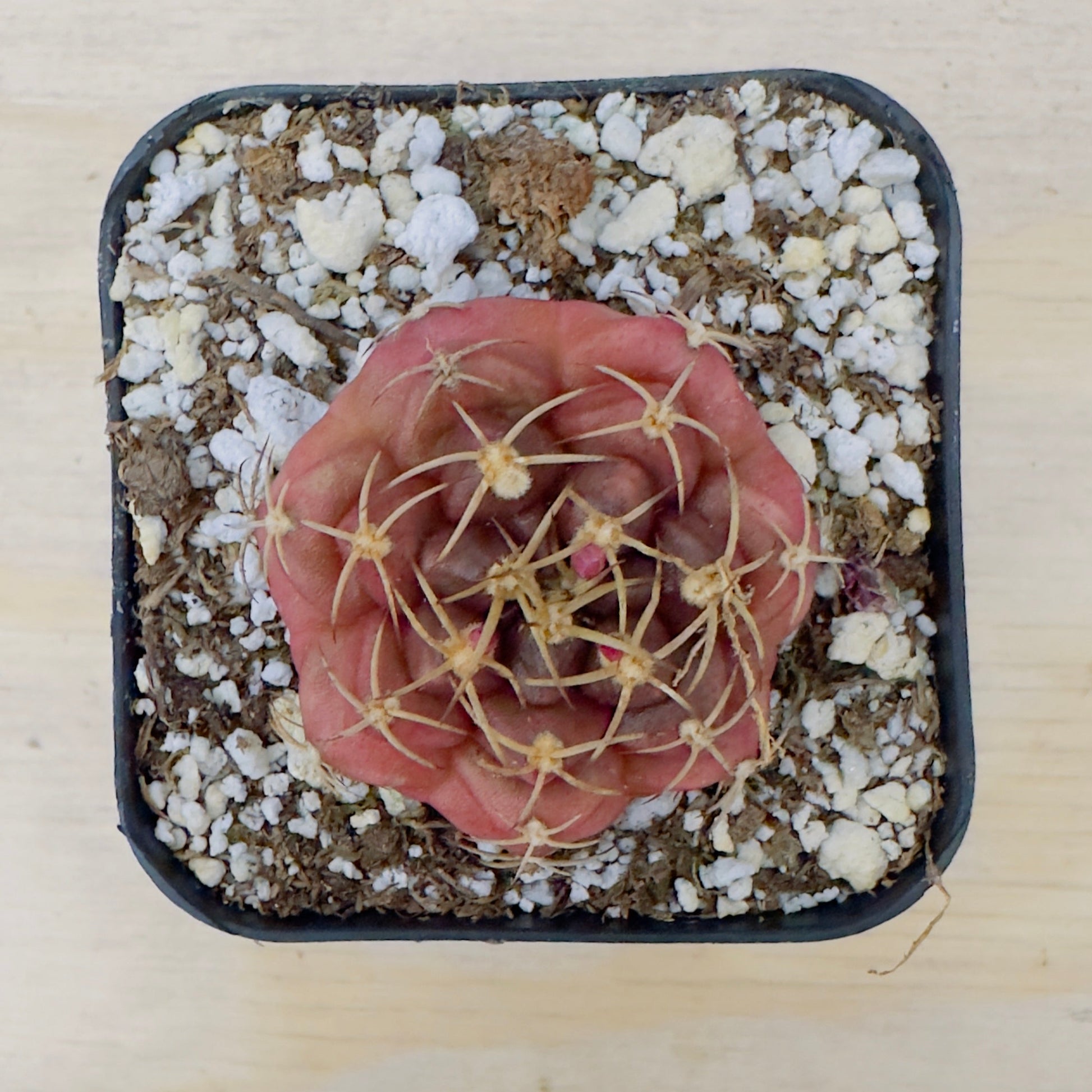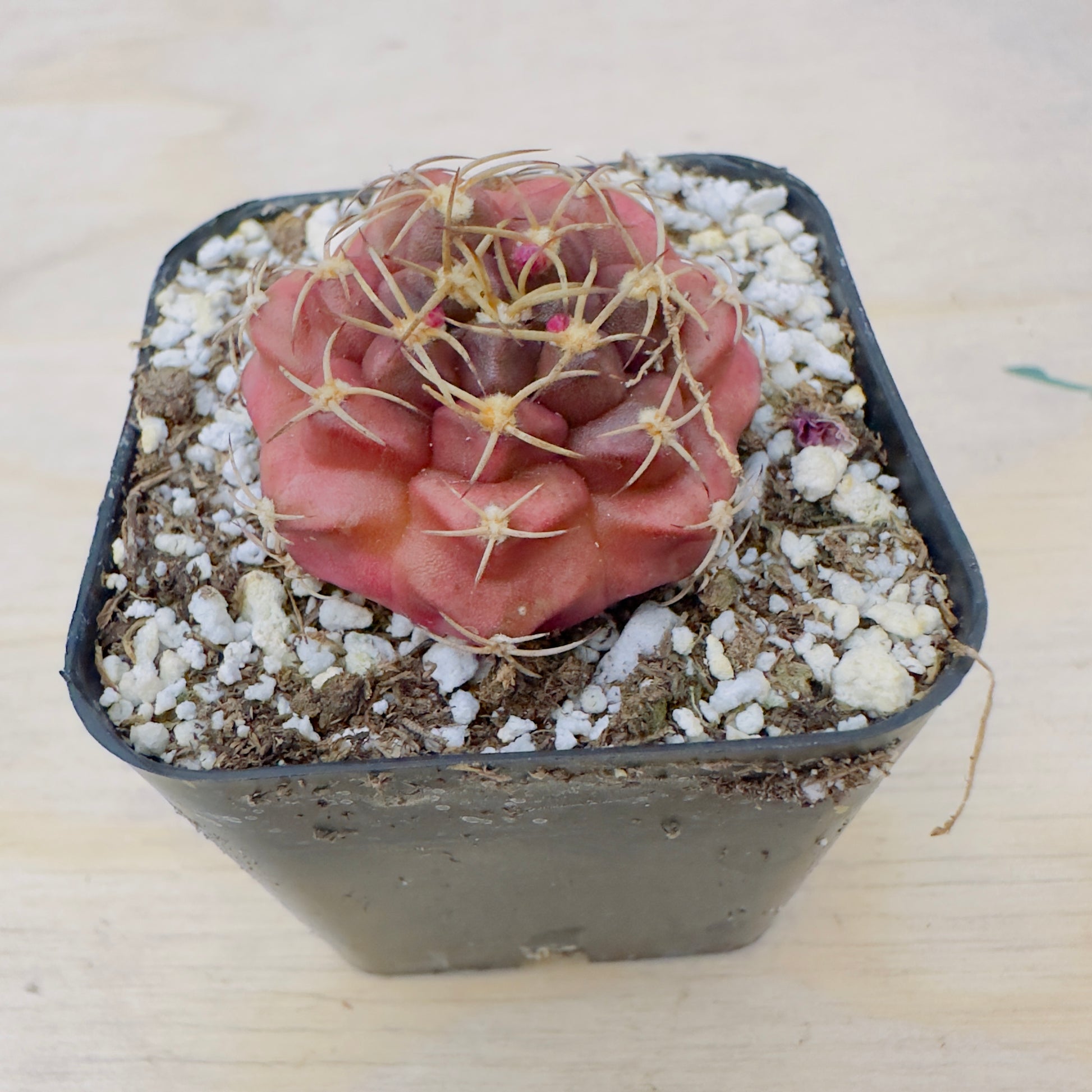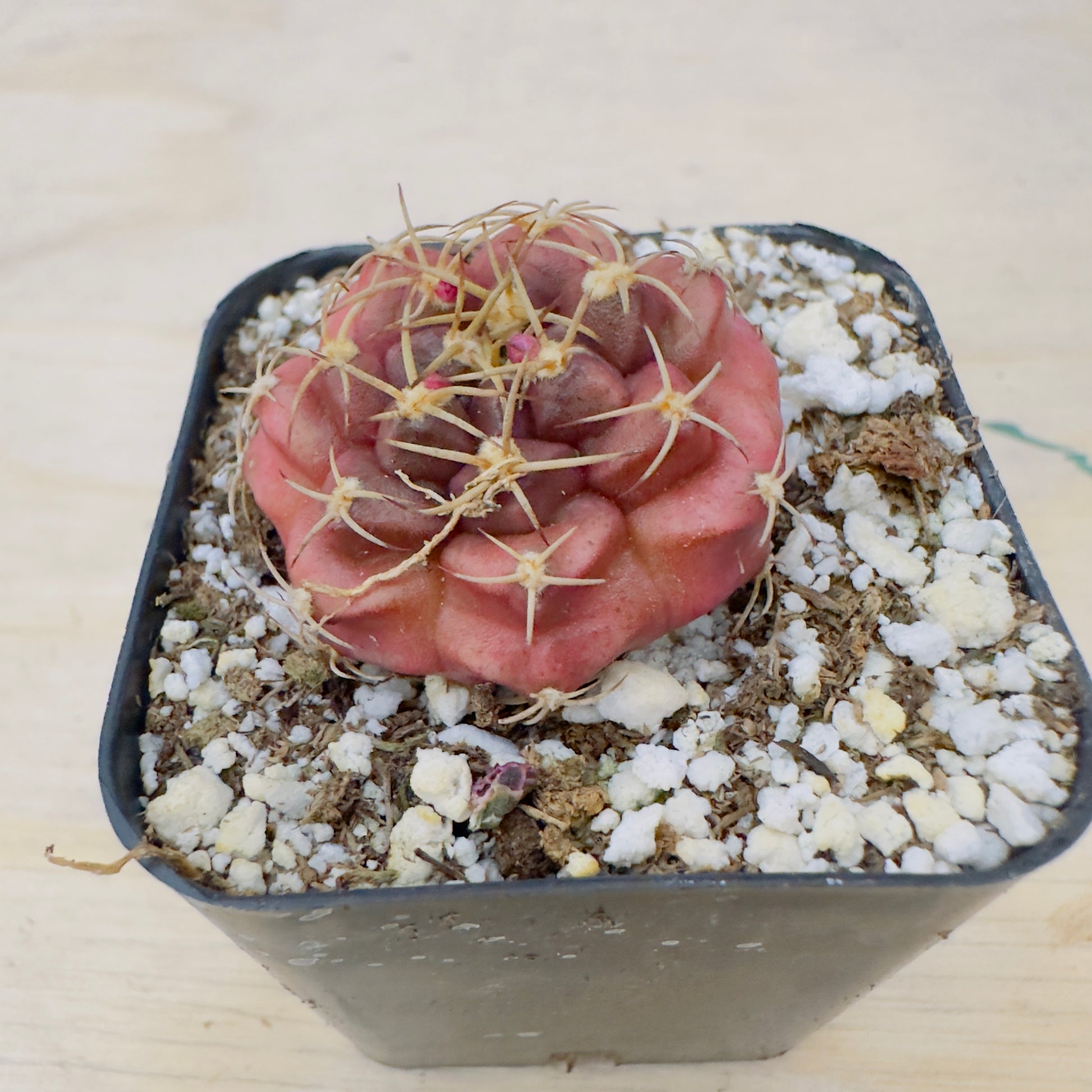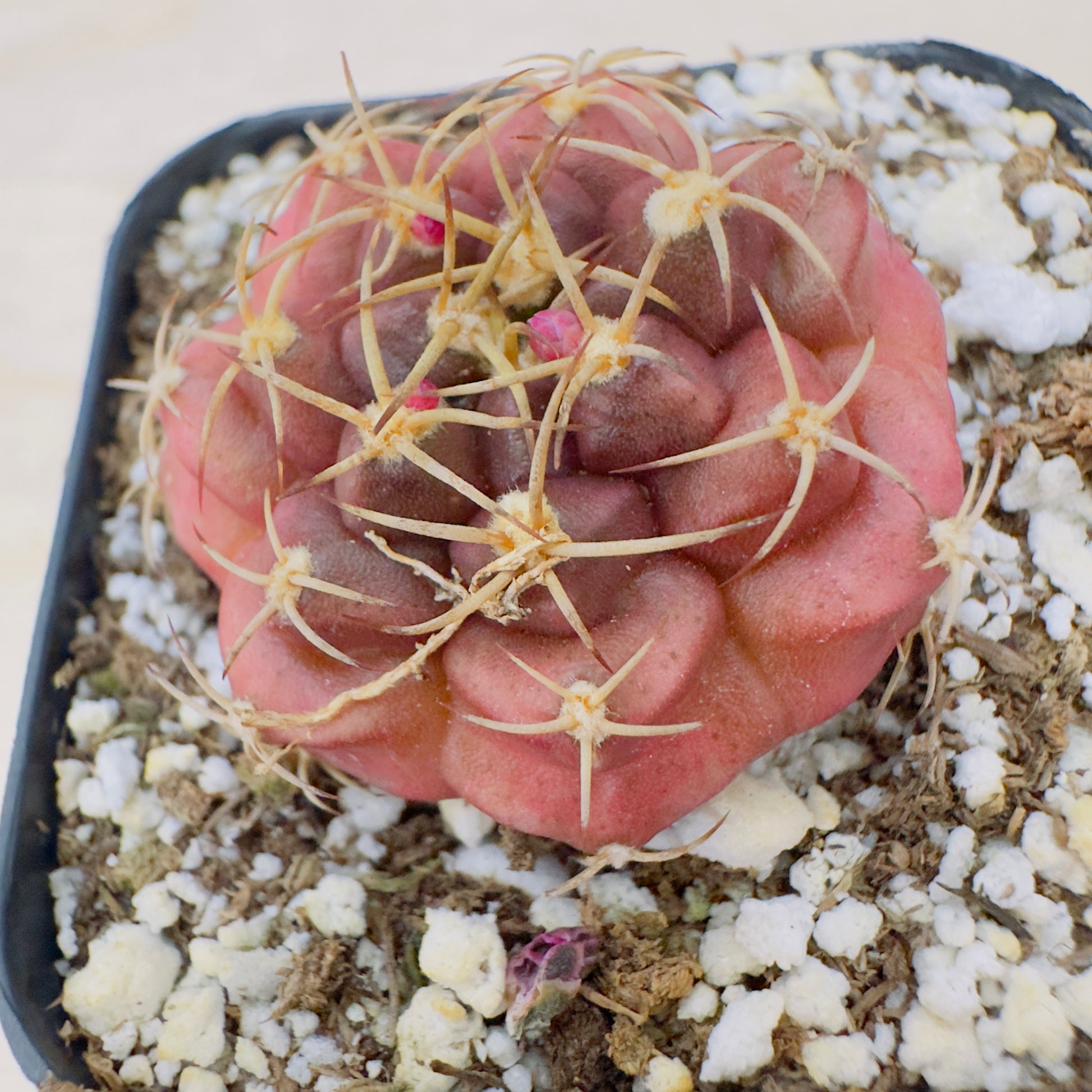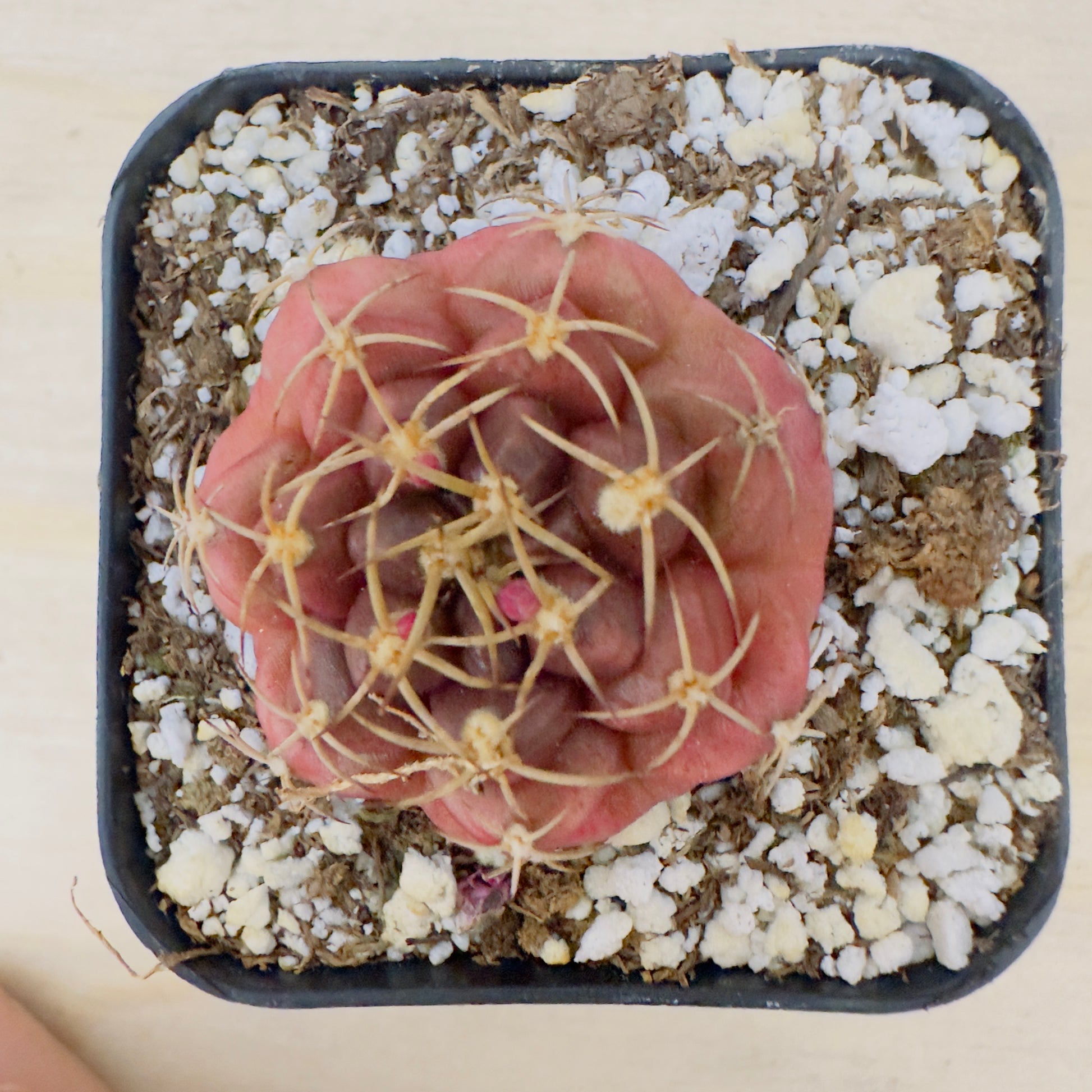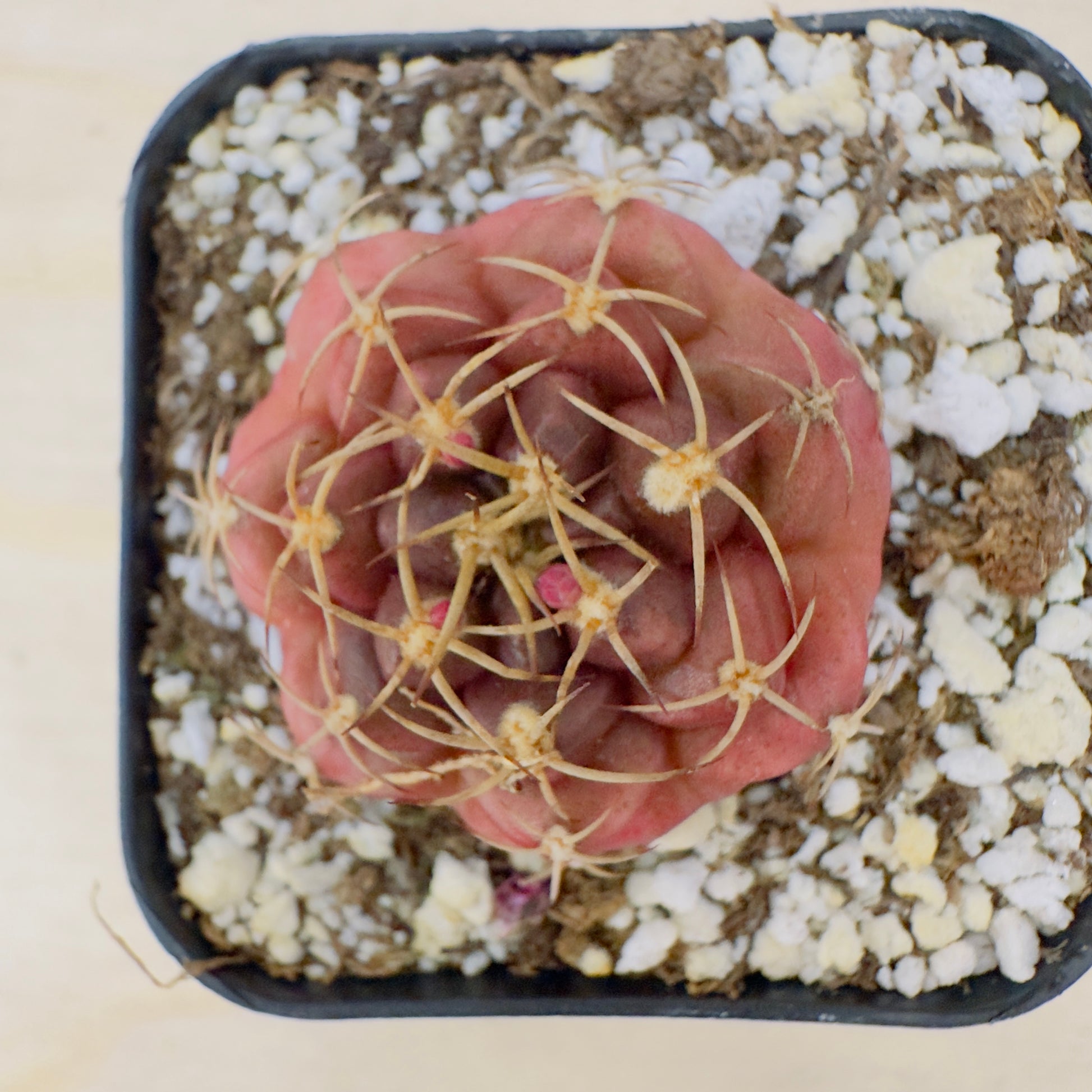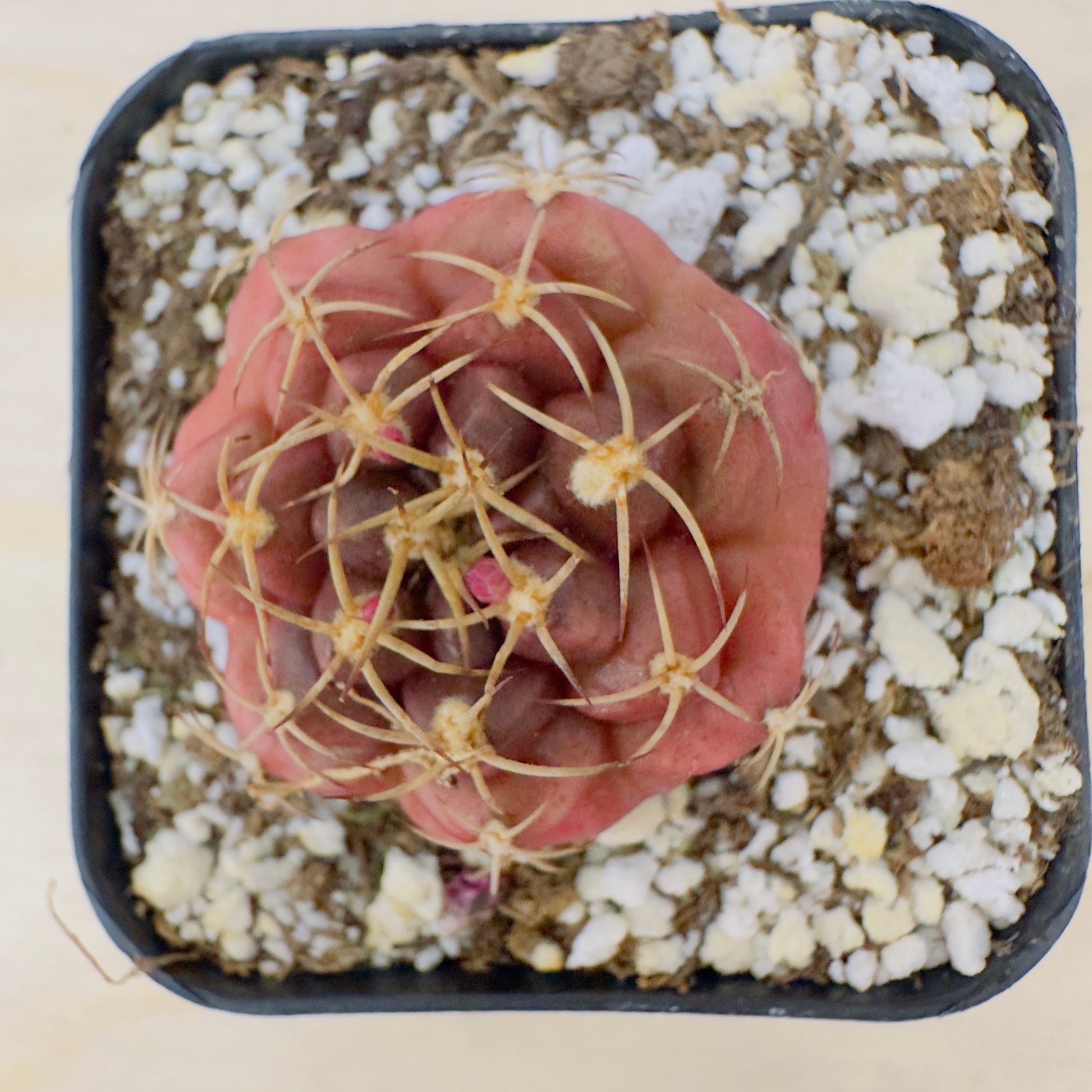Gymnocalycium anisitsii var. tucavocense
Gymnocalycium anisitsii var. tucavocense
In stock
Couldn't load pickup availability
📝 Description
Morphological Characteristics
Gymnocalycium anisitsii var. tucavocense is a charming and uncommon variety of the anisitsii species complex, prized for its small, globular shape and soft spination. It features a flattened, ball-shaped body that ranges from deep green to olive-green, often with a slightly glossy texture.
The body typically shows 10–13 shallow ribs, each marked by small, rounded tubercles. From these arise short, thin spines—usually 5 to 7 radial spines per areole and sometimes a single central spine. These spines are pale gray to pinkish-white, fine and flexible, giving the plant a delicate, brush-like appearance.
When in bloom, this species produces eye-catching flowers that are pale pink to near-white, sometimes with a subtle darker mid-stripe. Flowers are relatively large compared to the body and appear from the plant’s apex during spring or early summer.
Growth Habits
This cactus remains compact and non-offsetting for a long time but may eventually produce basal pups in maturity. It is relatively fast-growing for a Gymnocalycium and can fill a small pot within a few seasons.
Ideal for windowsill culture, desktop containers, or cactus groupings, it performs best in filtered sunlight and slightly shaded environments.
Maintenance Points
• Lighting: Prefers bright but indirect sunlight. Morning sun is ideal; avoid harsh midday rays in hot climates.
• Watering: Water when soil is completely dry. During winter dormancy, reduce watering to once every 4–6 weeks.
• Soil: Use a well-draining cactus mix. Enrich with pumice or perlite to prevent water retention.
• Temperature: Optimal range is 18–30°C (65–86°F). Not frost-hardy; protect below 5°C (41°F).
• Fertilization: Apply a diluted cactus fertilizer once a month during spring and summer. Avoid feeding in winter.
• Handling: Easy to handle due to soft spines. Ideal for homes with pets or children, though care is still recommended.
• Pests: Occasionally susceptible to mealybugs and root rot if overwatered or kept in poor ventilation.
Display & Use
This species is a favorite in beginner cactus collections due to its manageable size, gentle spines, and reliable flowering. Perfect for:
• Decorative pots with textured finishes
• Gentle-themed succulent arrangements
• Indoor shelf or windowsill displays
• Gifting for collectors of rare miniatures
🌿 Care Tips
Plant Care
Light
Water
Soil
Temperature
🌟 Note: It’s normal for succulents to appear slightly shriveled after shipping. They usually recover within a few days in a suitable environment.
📦 Shipping Info
Seah Shipping Policy
Effective Date: November 2025
This Shipping Policy applies to orders delivered within the continental United States (the lower 48 states). By purchasing from Seah, you agree to the terms below.
1) Shipping Cost & Free Shipping
- Automatic rate calculation: Shipping is calculated at checkout based on weight, destination ZIP and carrier rates.
- Free Standard Shipping: Orders $59+ (pre-tax, after discounts) ship free to the lower 48 states.
- Alaska, Hawaii, Puerto Rico & other territories: Not eligible for free shipping or standard flat offers at this time.
- Taxes/Duties: Applicable sales tax and any fees are shown at checkout.
2) Processing Schedule
- Business days only: We process and ship Monday–Friday. No shipping on weekends or U.S. federal holidays.
- Handling time: 1–3 business days after payment confirmation.
- Cut-off time: Orders placed before 3:00 PM (PST) are prioritized for same-day processing; others roll to the next business day.
- Changes/Cancellations: Email support@seah.co within 12 hours of purchase; after that, the order may already be in processing.
3) Transit Times
| Method | Estimated Transit | Total ETA (Handling + Transit) |
|---|---|---|
| Standard | 5–8 business days | 6–11 business days |
| Express | 3–4 business days | 4–7 business days |
ETAs are estimates. Weather, holidays, carrier delays or high-volume periods may extend delivery times.
4) Seasonal Temperature & Plant Safety
- Winter (Nov–Mar): We strongly recommend adding a heat pack at checkout to protect plants from freezing. Orders shipped without a heat pack during cold conditions are not covered for cold damage.
- Summer heat: During extreme heat waves, we may hold shipments until temperatures normalize. We’ll notify you if there’s a hold.
- Packaging: Plants are carefully packed (bare-root or potted by type/size) to minimize transit stress.
5) Carriers & Tracking
- We ship via USPS / UPS / FedEx, selected automatically for best service to your address.
- When your order ships, you’ll receive a tracking email. Tracking typically activates within 24 hours.
- If you haven’t received tracking within 3 business days, contact us at support@seah.co or +1 (626)-999-1314.
6) Address Changes & Delivery Issues
- Before shipment: Request address changes within 12 hours of ordering.
- After shipment: We can’t modify the address once dispatched. Please contact the carrier for redirection options.
- PO Boxes: Supported for USPS only; UPS/FedEx require a street address.
- Seah isn’t responsible for delays or loss due to incorrect addresses provided at checkout.
7) Service Area
We currently ship to the continental U.S. (lower 48 states). Orders to AK/HI/PR and other territories are not eligible for free shipping and may be restricted.
8) Support
- Hours: Mon–Fri, 9:00 AM – 5:00 PM (PST)
- Phone: +1 (626)-999-1314
- Email: support@seah.co
- Address: 7870 Margaux Pl, Rancho Cucamonga, CA 91739, United States
Thank you for supporting our California nursery—each plant is hand-selected and packed with care. 🌱
